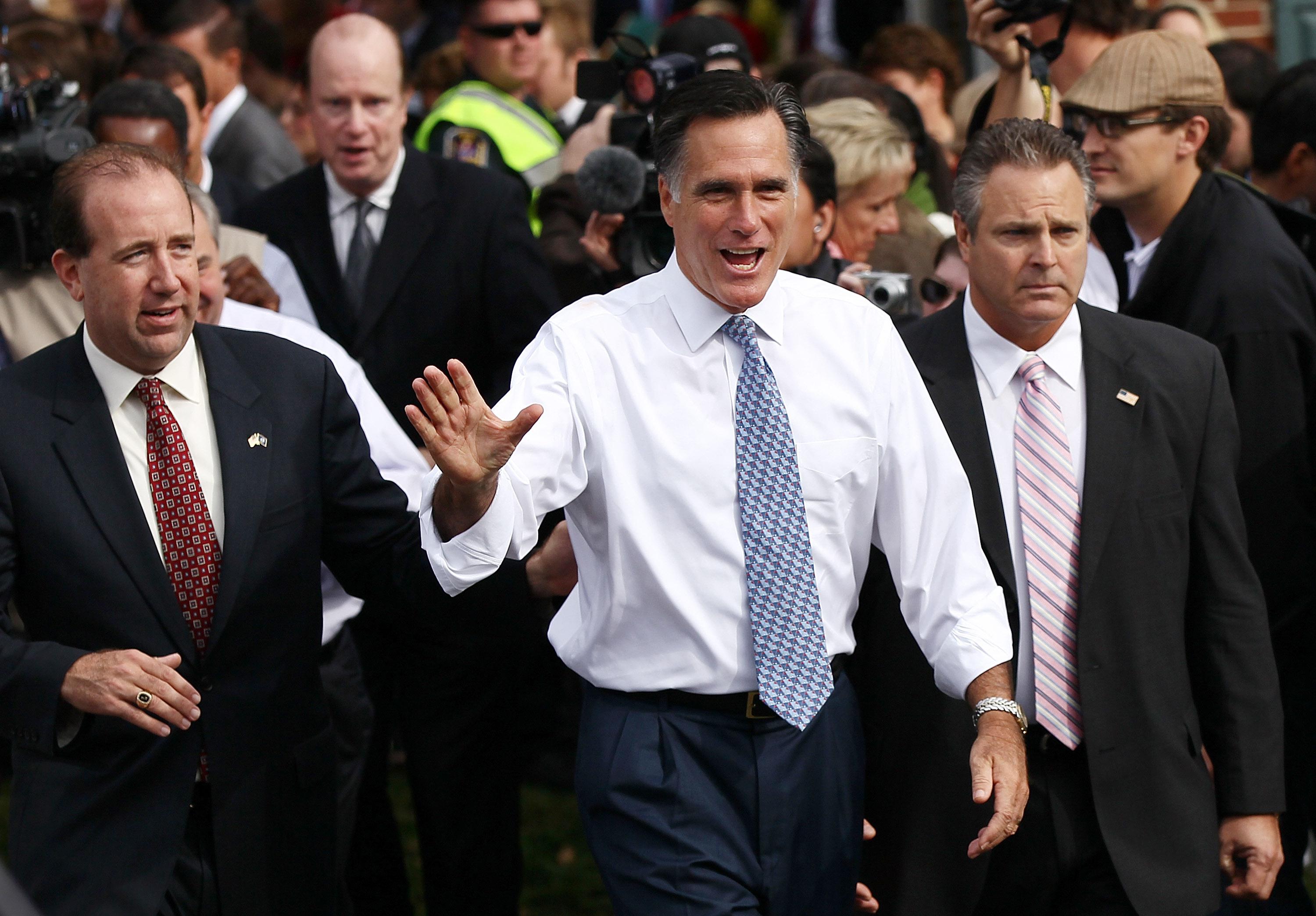Mitt Romney is into America. His bus is emblazoned with the slogan “Believe in America” and he likes to contrast himself to an incumbent who (allegedly) “fundamentally believes the next century is the post-American century.” But Romney doesn’t just believe America is the best country in the world, he believes it is “the greatest nation in the history of the earth.”
So is it? Does America really deserve Romney’s lustful ardor?
In the summer of 2010, Newsweek concluded that Finland, followed by Switzerland, is the best country on earth, citing a composite score based on education, health, quality of life, economic dynamism, and political environment. One could also argue quality of life per se determines the best country, in which case the winner by Newsweek’s metric is Norway. America ranked No. 11 overall and No. 9 on quality of life. The United Nations’ Human Development Index has us at No. 4, behind Australia, the Netherlands, and—again—Norway. The Heritage Foundation’s Index of Economic Freedom likes Singapore and Hong Kong the best, but we’ll nix them as candidates for overall bestness for their lack of political freedom. Then come Australia, New Zealand, Switzerland, Canada, Ireland, Denmark, and finally the United States.
You can slice these numbers different ways, but they deliver the same message: America is awesome, but not really No. 1. Depending on how you squint at it, one or more Nordic countries (sometimes joined by Switzerland or the Netherlands) always beat us, as does at least one of the “America-lite” Anglophone countries. To our credit, we’re really big and Norway and Australia are tiny. If you adjust awesomeness for population size, it’s clear that we lead the world in aggregate living standards, much as we lead it in GDP, military might, and other indicators. Our combination of size and prosperity leaves others in the dust.
Romney’s claim, however, is historical. We’re not just the greatest nation around today, but the greatest nation ever. For real?
In terms of sheer might, it’s hard to beat the Mongol Empire assembled by Genghis Khan and his successors. Ranging from China, across Russia, down into modern-day Iran, and with soldiers roaming as far west as Budapest, it was a truly mind-boggling achievement. But for all their skill at riding horses and shooting crossbows, the Mongols fell short on many of the things that matter. There are no great works of imperial-era Mongolian literature, no major Mongolian philosophers, not even much in the way of impressive monuments. Ancient Athens, by contrast, scores off the charts on culture but was a pipsqueak in political clout.
The British Empire, upon which the sun never set in its heyday, is a very strong contender. In military terms, it bestrode the earth like a colossus. It dominated the global economy to an even greater extent than it ruled the waves. In cultural terms, the British Empire is exemplary. And beyond music, art, literature, and a few outstanding museums and palaces, Britain (much more so than Greece or Rome) is where the modern pillars of liberal democracy—representative government, civil liberties, and impartial judiciary—were forged. Where Britain falls short is longevity. Over 400 years passed between the assassination of Julius Caesar and Alaric’s sack of Rome. By contrast, the very liberalism and expansive vigor that made Britain such a remarkable great power also made it a relatively ephemeral one, with settler-colonies perennially drifting away from the crown and subjugated peoples agitating successfully for independence.
China stands out from the pack by transcending the rise and fall of particular rulers and by displaying astonishing cultural unity and continuity. The pull of China’s language and society are so strong that successive waves of rulers, be they Mongol, Manchu, or Marxist in origin, ended up subsuming themselves in the larger Chinese civilization. Today’s China, with around 15 percent of the world population, is actually relatively small compared to the Qing or Tang Dynasties which by some estimates were home to over 25 percent of humanity. Still, China hasn’t spread beneficial ideas to the world beyond its borders in the same way that Greece, Rome, Great Britain, and the United States have. In that critical way, we still have an edge.
